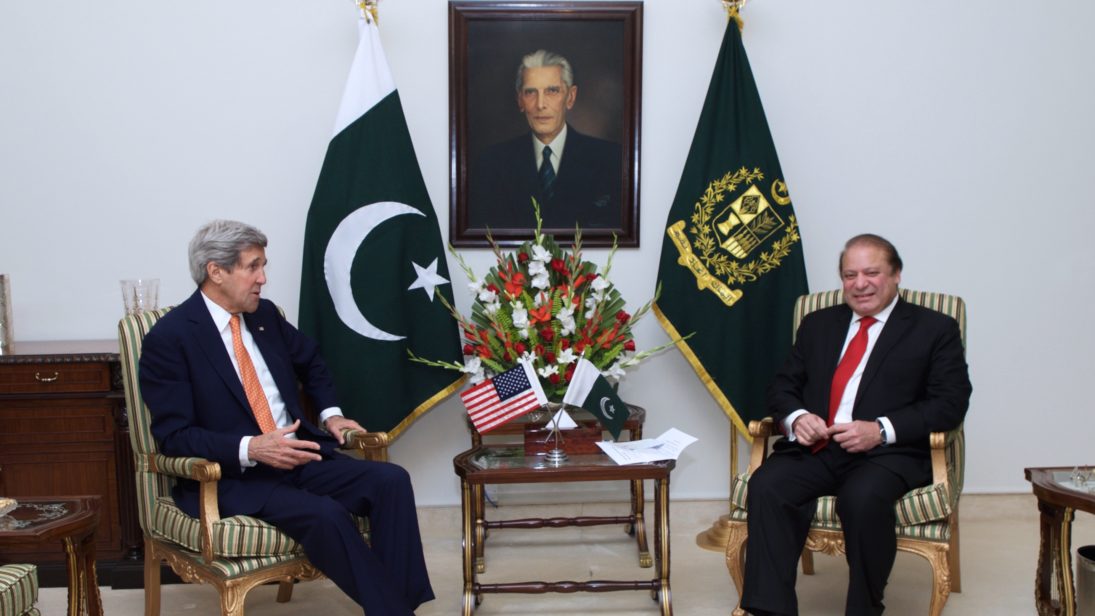
United States-Pakistan Strategic Dialogue
Earlier in this series
US-Pakistan: The Hijab of Expectations
Repeat of the Familiar: US, Pakistan, and F-16s
Palpable Progress, Uncertain Future?
US-Pakistan: A Cynic’s View from Delhi
******
South Asian Voices endeavors to ensure its contributors are influencing policy debates in India, Pakistan, and the United States. To this end, SAV’s new feature, Experts ki Rai, will have experienced South Asia specialists weigh-in on contributors’ analysis, in the hope of continuing to advance meaningful dialogue on the subcontinent and beyond. We begin with Dr. Hassan Abbas offering his comments on our recent series about the United States-Pakistan Strategic Dialogue.
-Team South Asian Voices
******
It is heartening to see smart analysis about United States-Pakistan relations produced by emerging writers of South Asia. Overall, the articles provide important insights and raise critical questions.
Sana Ali’s evaluation of central themes of the United States-Pakistan Strategic Dialogue is spot on. However, there is a missing element in the piece that deserves more attention and reflection: both sides have suffered many disappointments in the process as well. Pakistan would have liked to see a more concerted effort and sustained support from the United States in the development sector whereas the Obama administration had higher hopes from Pakistan in regards to its role in bringing the Taliban to the negotiating table and supporting Kabul in facing the Taliban menace.
Abhijit Iyer-Mitra’s bold piece artfully reflects New Delhi’s thinking about United States-Pakistan relations and provides useful insights about the politics of arms trade. I disagree with the author’s sarcastic conclusion that America is being taken for a ride by South Asians. I think the United States cares deeply about the security dynamics in South Asia and often warns Pakistan behind closed doors about the potential negative impact of Pakistani militant groups’ activities inside India.
Rabia Akhtar accurately portrays the centrality of two important security challenges faced by the two states in a bilateral context—counterterrorism and nuclear safety. However, her recommendation that Pakistan should look for alternate sources of support in these sectors is unlikely to help reduce U.S. worries about the terrorist threat emanating from the region and nuclear proliferation concerns. Carrying on with the dialogue in good faith, as she rightly suggests, is the best policy for both sides.
Rajeshwari Krishnamurthy’s assessments about Indian concern revolving around the potential sale of F-16s to Pakistan reflect the perennial tensions felt in the United States-India discourse. It is often missed that this transaction is unlikely to have any meaningful impact on the India-Pakistan balance of power in the region. According to media reports, the Pakistan Air Force played a very important role in its counterterrorism campaign in the tribal areas and the United States wants to acknowledge these contributions. Both India and Pakistan, however, need to invest more in their people rather than their militaries to build a better future for South Asia.
Hassan Abbas is professor and chair of the Department of Regional and Analytical Studies at National Defense University’s College of International Security Affairs in Washington, DC. His latest book, The Taliban Revival (Yale University Press, paperback October 2015), chronicles the Taliban’s survival and resurgence after 2001, through firsthand research and interviews in the area.
***